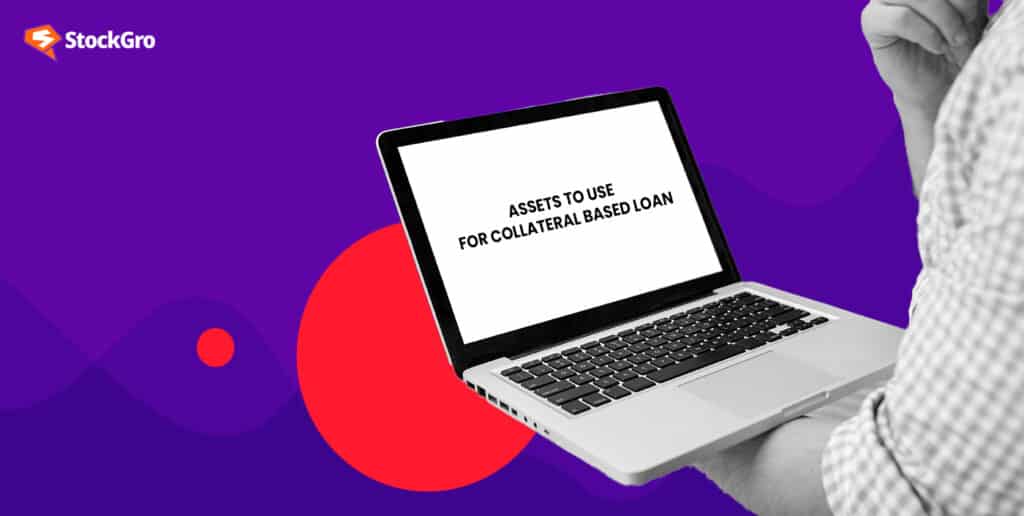
When it comes to obtaining a loan, lenders frequently need collateral to secure their investment. Collateral is an asset pledged as security for a loan. If the borrower fails on the loan, the lender may take and sell the collateral to recover their losses. Several sorts of assets may be used as collateral, each with its own set of benefits and drawbacks. In this part, we will look at the different types of assets used for collateral based business loans.
What is meant by collateral against a loan?
Collateral may be any asset the borrower promises to the lender as security for the secured loan. It is a supporting medium for a loan transaction since the lender can liquidate it in the event of a payment default, and so it functions as collateral for the amount lent by the lender.
For example, assume you want to establish a new firm and want to take out a loan. Your lender would need you to pledge any collateral, such as your property, or another type of security, such as real estate, bonds, or government securities, of equal or greater financial worth. Furthermore, after the lender has completed the evaluation and is happy with the collateral based loan documents, they will issue you the loan and meet your financial needs.
You may also like: Benefits of a business loan in India: Why should you consider taking one?
Secured Versus Unsecured Loans
The asset-based or collateral based loans are backed by collateral. A business asset is any property that the company owns and controls. The lender may seize the collateral asset if a company fails to make payments. Lenders use this to assure repayment in the event of a default while minimising risk.
Unsecured loans are the opposite of collateral based loans. Lenders assess creditworthiness and years in the company when deciding how much to lend. These loans have higher interest rates yet need no collateral. Lenders cannot seize the company’s assets if a borrower fails to repay the loan.
The following asset types should be used for a collateral-based business loan in India.
Different Types Of Collateral
The different types of assets to use for collateral-based loan are:
Real Estate Collateral
Business owners often utilise real estate as collateral for loans. Lenders primarily choose this asset class because homes hold their value over time. If the property is worth more, a lender may be willing to provide additional finance.
Collateral might be any form of property, including a commercial facility or the business owner’s house. On the other hand, defaulting on a loan might result in the borrower losing their asset, which can be especially troublesome if it is a family home.
Business Equipment Collateral
It is a reasonable, low-risk collateral choice for construction and industrial businesses. Using corporate equipment is a safer financial option than committing any personal property. Unfortunately, company equipment tends to degrade over time. If you own worn-out machinery, you are unlikely to be able to secure further financing.
Lenders may sometimes hesitate to accept specific company equipment as collateral, mainly if it is challenging to locate a buyer.
Also Read: Navigating the commercial loan landscape: A comprehensive guide
Savings Account Collateral
Business savings accounts can also serve as collateral, with banks and other institutions favouring cash as it offers simplicity in transactions. Opting for cash collateral enables lenders to recoup their funds without selling tangible assets in the event of borrower default. While lenders may perceive this as low-risk, borrowers might view it as risky, given the potential loss of their savings.
Inventory Collateral
The stock of a product-oriented enterprise, be it a brick-and-mortar retail establishment or an online store, could potentially be utilised as collateral to obtain financing. Nevertheless, specific lenders may be hesitant to accept inventory as collateral owing to the challenges associated with its liquidation.
Moreover, relying on inventory as collateral could adversely affect your revenue stream. Failing to meet payment obligations puts your inventory at risk, potentially depriving you of the means to generate profits. This scenario could escalate to difficulties with other creditors or, in severe cases, result in bankruptcy for your business.
Blanket Lien Collateral
A blanket lien represents an intangible form of collateral. Liens constitute legal assertions against a business’s assets, serving as security for loans or debts. With a blanket lien, the lender can claim as many assets as required to satisfy a defaulted loan.
While providing lenders with considerable protection, blanket liens pose the risk of complete asset loss for business owners. Borrowers encumbered by liens may encounter difficulties obtaining new loans, as lenders already hold claims on their assets.
Investments Collateral
Investments like stocks and bonds can serve as collateral for a business loan or line of credit, similar to cash. Opting for liquid assets aids in swift repayment to creditors, a practice frequently employed by banks but not as common among fintech lenders.
Nevertheless, fluctuations in market conditions can impact the valuation of investments. Also, bad credit collateral-based loans can have a significant impact. Should the value of your investments fall below the borrowed amount, you may find yourself in a challenging position.
Also Read: What is a Business Loan for MSME?
How do you choose between secured and unsecured loans?
Various things must be addressed when deciding between a secured and an unsecured loan. Here are a few things to remember:
- Collateral:
Secured loans demand security, such as property or company equipment, whereas unsecured loans do not. If you have assets to put up as collateral, a secured loan may provide lower interest rates and more significant borrowing limits.
- Interest rates:
Secured loans often have lower interest rates than unsecured loans because they provide lenders with more security. However, unsecured loans can still offer reasonable interest rates if you have strong credit.
- Loan term:
A secured loan often has a longer loan duration than an unsecured loan since the lender has collateral to back it up. Unsecured loans usually have shorter payback periods.
- Loan amount:
Secured loans allow for high loan amounts due to the collateral, whilst unsecured loans offer lower borrowing restrictions.
- Risk tolerance:
If you are risk-averse, an unsecured loan may be a better option because you will not be required to put up collateral. However, if you’re sure of your capacity to repay the loan and have assets to back it up, a secured loan may provide better conditions.
Which type of collateral works best for you?
There is no universal solution to this query, as it largely depends on your specific business circumstances. As a business owner, only you can determine the most suitable types of collateral for securing loans. A logical starting point involves assessing the assets at your disposal.
Consider whether you possess real estate, outstanding invoices, or investment accounts of significant value. Evaluate the advantages and drawbacks of leveraging these assets as collateral, particularly regarding the potential financial implications if you encounter difficulties in meeting payments. Additionally, ensure clarity on the lender’s expectations regarding the value of the collateral.
Furthermore, evaluating whether utilising a particular type of collateral warrants the associated risks is essential. For instance, staking your family’s home to finance a risky venture may not be prudent. Instead, strive to align the risk level with your comfort level and confidence in the endeavour.
Conclusion
When deciding to secure a loan, every business borrower needs to weigh various factors, including the desired loan amount, the preferred loan type, asset-based loans, and the most suitable collateral. Each loan type carries its own pros and cons, making it crucial to evaluate them individually based on the business’s specific circumstances.

